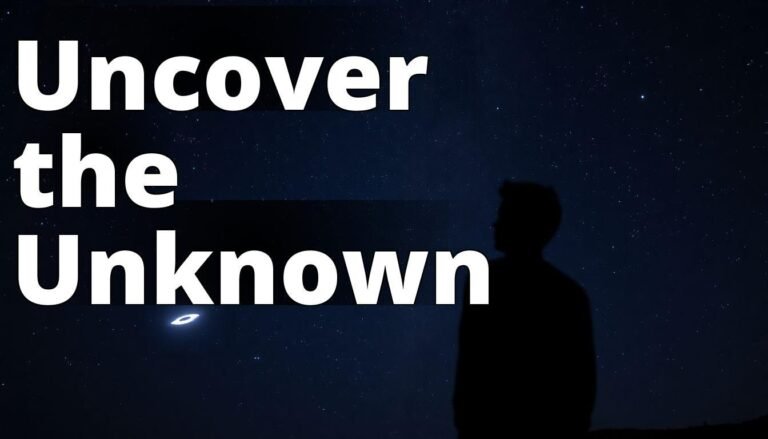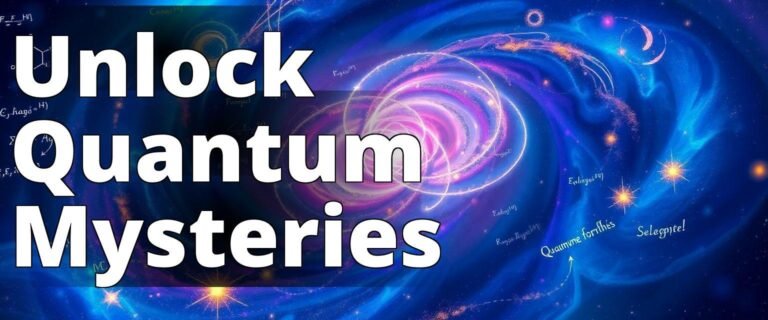The Quantum World
Have you ever wondered about the invisible threads that might connect us to the universe in ways we can’t yet comprehend? The quantum world is a realm where the rules of the ordinary dissolve into a sea of probabilities and possibilities. It is here, in the subatomic world, that scientists believe we might influence matter at the quantum state. But how real is this influence? Is it merely a thin white lie we tell ourselves, or is there a scientific basis behind it?
Influence on Quantum Matter
Discover how our consciousness may affect matter at the quantum level.
– Quantum mechanics suggests that observation can influence particle behavior, indicating a link between consciousness and matter.
– Experiments like the double-slit experiment demonstrate that particles behave differently when observed, hinting at the role of the observer.
– The concept of entanglement shows that particles can be interconnected, suggesting that our actions can have effects beyond immediate physical interactions.
How Do We Influence Matter at the Quantum State?
At the heart of quantum mechanics lies the concept of wave-particle duality, a principle suggesting that every particle or quantum entity may be described as either a particle or a wave. This duality is famously illustrated by the double-slit experiment, where particles such as electrons create an interference pattern when not observed, behaving like waves, but form two distinct lines when observed, behaving like particles.
The Double-Slit Experiment
Imagine a room with two doors and a constant stream of people walking through. If you watch them, they choose a door and walk through it. But in the quantum world, particles behave differently. If unobserved, they seem to pass through both doors simultaneously, creating a pattern of interference on the wall behind them. Yet, when you look, they choose a door, and the interference disappears.

This experiment suggests that the mere act of observation can alter the behavior of quantum particles. It’s as if the universe is aware of our gaze, changing its course to suit our expectations. But is this change real or just a facet of our understanding?
Insider Tip: According to Dr. Werner Heisenberg, one of the pioneers of quantum mechanics, “The path comes into existence only when we observe it.”
The Observer Effect: A Real Phenomenon?
The observer effect in quantum mechanics postulates that the act of measurement affects the system being observed. This phenomenon is not limited to the realm of philosophy but is grounded in rigorous scientific experimentation. Researchers at Yale University conducted an experiment where they manipulated the quantum state of an atom using photons, observing that their mere observation changed the atom’s energy levels. Read more about this experiment here.
Practical Applications
In practical terms, the observer effect is crucial in the development of quantum computers where qubits must remain stable. The challenge lies in observing these qubits without altering their state, a task akin to measuring the ripples in a pond without disturbing the water.

This phenomenon opens a Pandora’s box of questions: Could our thoughts affect the material world? Is our consciousness entangled with the universe in ways we don’t yet understand?
Entanglement: The Spooky Action at a Distance
Albert Einstein famously referred to entanglement as “spooky action at a distance.” It describes a phenomenon where two particles become interconnected in such a way that the state of one instantly influences the state of the other, regardless of distance. This peculiar behavior has been observed in experiments involving photons, electrons, and even small molecules.
Real-life Implications
Entanglement is not just a theoretical curiosity; it has real-world applications. For example, it forms the backbone of quantum cryptography, a method of secure communication that could revolutionize data security. In 2017, Chinese scientists achieved a groundbreaking feat by entangling particles across a distance of over 1,200 kilometers, proving the feasibility of quantum communication networks.

Could entanglement suggest a deeper connection between all things? If two particles can remain connected over vast distances, what does this mean for our understanding of space and time?
The Role of Consciousness in the Quantum World
A controversial topic in quantum physics is the role of consciousness. Some theorists propose that consciousness itself could be a fundamental part of the quantum world. This idea, while not widely accepted in the scientific community, has sparked debates and inspired a wealth of speculative theories.
Theoretical Perspectives
Dr. Roger Penrose, a renowned physicist, suggests that consciousness could arise from quantum processes within the brain. His theory, known as Orchestrated Objective Reduction (Orch-OR), posits that microtubules within the brain’s neurons might function as quantum processors.
This theory, while intriguing, lacks empirical evidence. Nonetheless, it raises profound questions about the nature of consciousness: Could our minds influence reality on a quantum level? Are we more intricately woven into the fabric of the universe than we realize?
Insider Tip: While exploring consciousness in quantum mechanics remains speculative, it serves as a reminder of how much we have yet to discover about our universe and ourselves.
Quantum Superposition and Its Mysteries
Quantum superposition refers to the ability of a particle to exist in multiple states simultaneously until it is measured. This principle is famously illustrated by Schrödinger’s cat, a thought experiment where a cat in a sealed box is simultaneously alive and dead until someone opens the box.
Schrödinger’s Cat: A Paradox
This paradox challenges our understanding of reality. If a particle can exist in multiple states, what does that imply about the nature of existence? Are we, too, in a state of superposition, with multiple potential realities branching out from each decision we make?

The implications of superposition extend beyond philosophy. In quantum computing, superposition allows qubits to perform complex calculations simultaneously, vastly increasing computational power. This principle could revolutionize fields from cryptography to materials science.
The Multiverse: A Quantum Possibility?
One interpretation of quantum mechanics is the Many-Worlds Theory, which suggests that every quantum event spawns a new universe. According to this theory, all possible outcomes of a quantum event actually occur, each in its own separate universe.
Understanding Many-Worlds
The Many-Worlds Theory offers a radical view of reality, suggesting an infinite number of parallel universes, each with its own version of events. While primarily theoretical, this idea has captured the imagination of scientists and storytellers alike.

Could there be countless versions of yourself, each living a different life in a parallel universe? If true, this theory expands our understanding of reality, offering endless possibilities and challenges our perception of our unique individual existence.
Insider Tip: Dr. Hugh Everett III, the originator of the Many-Worlds Theory, believed that every decision made creates a branching of worlds, a concept both exhilarating and daunting in its implications.
Conclusion: Quantum Possibilities and Thin White Lies
The quantum world is a realm of wonder, filled with mysteries that challenge our understanding of reality. From the observer effect to quantum entanglement, these phenomena suggest a universe far richer and more interconnected than we can currently comprehend. While we may not yet fully grasp how we influence matter at the quantum state, the pursuit of understanding these mysteries continues to drive scientific inquiry.
In exploring the quantum world, we are reminded of the thin white lies we tell ourselves about the nature of reality. What we perceive is not always what is true, and the quantum realm invites us to question our assumptions and embrace the unknown. As we delve deeper into the quantum world, we may discover that our influence extends beyond what we can see, touching the very fabric of the universe itself.
For more insights into the fascinating world of quantum physics, visit Thin White Lies.
Questions and Answers
Who studies how we influence matter at the quantum state?
Scientists and researchers in quantum physics study this phenomenon.
What does it mean to influence matter at the quantum state?
It refers to manipulating particles at a subatomic level for desired effects.
How can we influence matter at the quantum state effectively?
Techniques like quantum entanglement and superposition are commonly used.
Where can I learn more about quantum influence in physics?
Educational institutions and online courses focus on quantum physics principles.
Why should I care about influencing matter at the quantum state?
Understanding this can lead to advancements in technology and medicine.
Isnt influencing matter at the quantum state just theoretical?
Many practical applications are emerging, showing real-world possibilities.







